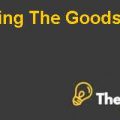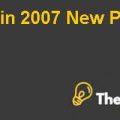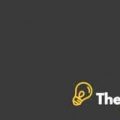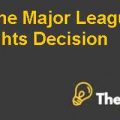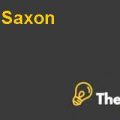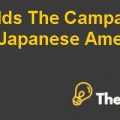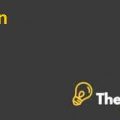Apple Inc. Case Study Solution
Question 1
- This risk is specific for the Apple Inc. Which means it is unique risk for the company in the industry. It is because the company’s success depends on continued services of the key personnel’s such as the chief executive officer and executive team. Because, due to the increased competition in the market, it has increased the demand of that talent. So, the risk is specific to company,which is why it is unique risk that is diversified.
- This risk is called market risk.Since, the fluctuation in the currency rates is not specific risk for the company or the industry, but it would affect the whole market equally. Therefore, it is unsystematic risk, which varies but can be hedged indeed.
- This is firm specific risk that would affect the company, thus it is unique risk. Because, if the company invest in another business or involves in an acquisition.So its liabilities, expenses, and exposure to the risk would increase.That might overload the management. Therefore, quality of services might be undermined in this situation. Hence, it is known as firm specific risk unique risk.
- This is also a unique risk for the company that could be diversified. Because, the increasing competition in the market has emphasized over the product innovation in the market. On the other hand, the technology has also fueled the demand for the new and disruptive products. Similarly, Apple has to meet with the customer demand,by product innovation. Since, it is specific to company, therefore it is unique risk.
- This is market risk known as systematic risk, could not be diversified. It is because, the worst economic conditions might lead to declined demand for products, as the income level and employment would decrease that would have adverse effect over the operation of the company, industry and whole market as well. Therefore, it is market risk, rather than unique risk.
Question 2
- If all risk factors given in the report are unique risk, then the variance-covariance matrix would change. It is because, the unique risk or the firm specific risk could be diversified,as the company could diversify the portfolio to lower the risk. Indeed, the variance-covariance matrix is combination of the risks and weights, and is also associated with other variables as well. Therefore, the σ2would also change, due to the change in the nature of risk. Indeed, the σ2would decline, due decreased risk in the overall portfolio.
- If all risk factors reported are no longer divided equally, and all risk is market risk that is known as systematic risk,which could not be diversifiable.Then the variance-covariance would change significantly, due to increased risk of the portfolio that would affect the σ2very negatively. Indeed, the increased risk would cause the variance to increase, due to increased risk of the overall portfolio and market risk.
Question 3
In a portfolio of one asset class that is risky, would have high return and high risk as well. However, when same class of the risky assets are put together, with some other class of assets, then the risk of those risky assets would be compensated. Therefore, the overall portfolio would have low risk and high return. Similarly, the portfolio S has higher σ2 would have higher variance.Since, there is only one asset in the class asset. On other hand the portfolio L is 100 stocks portfolio with lower σ2 as compared to the s portfolio.As the stocks in the portfolio L has been put together with risky assets and other with low risk stocks. Meanwhile, their combination has mitigated the risk of overall portfolio, unlike portfolio S that has higher σ2................
This is just a sample partial case solution. Please place the order on the website to order your own originally done case solution.

